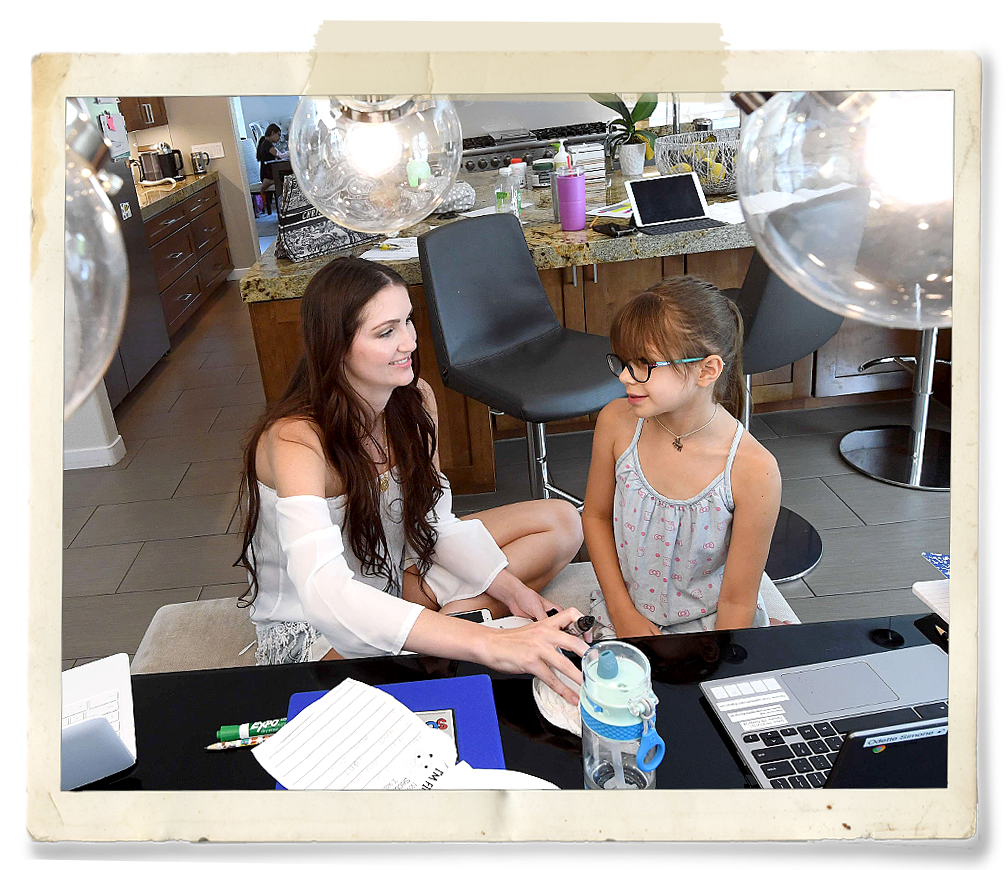A society behind closed doors
E-Learning kept education going. As children and teachers worked to get used to distance learning, parents grappled with keeping the kids focused and in their seats

AFP
Babysitter Marissa Milawski (left) and Odette Conrad, 7, with her independent study work at Odette's home during the first week of distance learning, in Las Vegas, US.
E-learning crept into our lives just as quietly as the coronavirus. As much as many of us would hate it, distance learning did help keep our children’s education going at a difficult time. It may not have been perfect, but it still served to fill the void caused by the closure of schools.
For many of us, distance learning belonged to the realm of universities. We never paid much attention. For others, online learning meant Khan’s Academy and Byju’s education app. Their video tutorials are a tremendous help to students, but they merely supplemented classroom learning. Schools continued to be the primary source of education, and it should remain so.
In the UAE, distance learning in schools was born after a two-week incubation period. The short turnaround time was the result of measures to fight the spread of coronavirus. Although there has been some form of e-learning, most educators were pitchforked into the unfamiliar role of teaching in front of a camera.
The demands of teaching through Zoom and Google Meet is drastically different. So for the teachers, who are so used to classroom teaching, it’s been a learning experience. And the learning curve has been very steep. From readying teaching material to the assessment of students, they had to adapt to a totally new form of disseminating knowledge.
How successful was the experiment? We don’t know. But the teachers acquitted themselves well, despite the demands of unfamiliar territory.
Most students loved it. They loved the experience of being online. After all, they are digital natives. But the naughty ones had another browser window open for online games. That necessitated parental supervision. For parents who work from home, it wasn’t easy. So the supervision could well have been slack. Did the students benefit?
For students who were keen on learning, online classes shouldn’t have been a problem. They must have adjusted quite well. But the distracted ones suffered. And the younger ones are easily distracted.
So teaching primary school students must have been a nightmare for teachers and parents. One parent, who narrated the struggles to keep her son still during e-classes, said the moment she leaves the room, her son does cartwheels. Children will always be children.
Cartwheels and exercise belong to the physical education classes, which wouldn’t work well online. Education is not limited to books and syllabus; extracurricular activities go a long way in shaping a person. In the formative years, this is important.
Schools in the UAE have resumed classes. Some began the term with e-learning, others started in a staggered fashion to allow for social distancing. Much of the focus understandably is on keeping the virus out of the classrooms. Children must return to classrooms. Only then will we have a generation who will be equipped to flourish in the post-COVID era.
Children are the future. That’s normal.